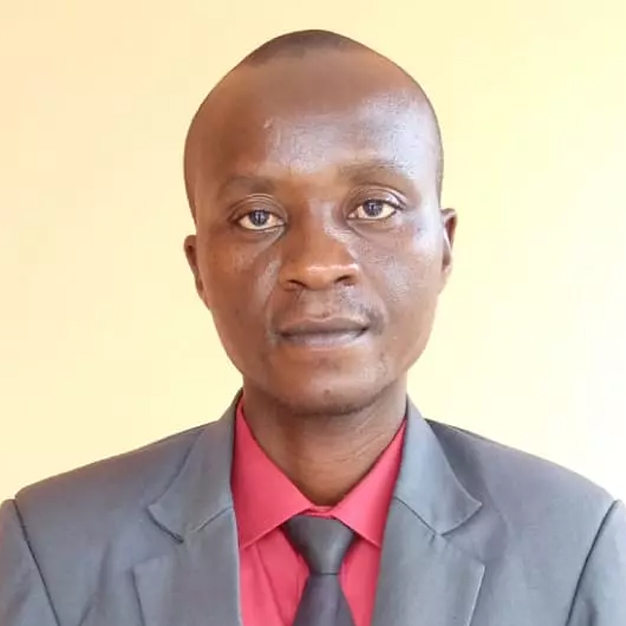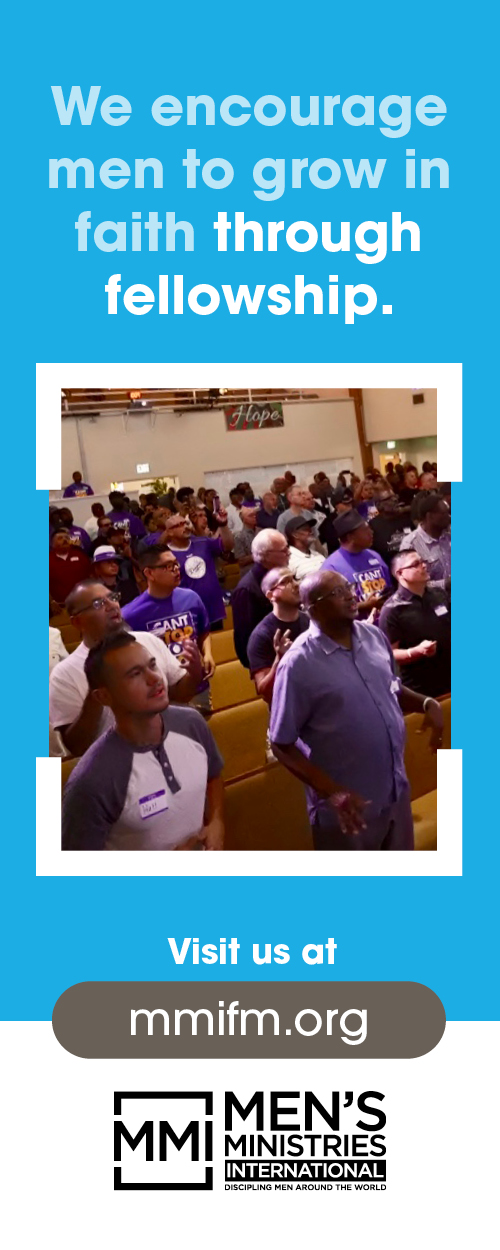
Gilbert Hafashimana
Gilbert Hafashimana grew up in the East African nation of Burundi where he was a faithful member of the Free Methodist Church. His ministry soon expanded to hundreds of children, evangelistic crusades, Good News Clubs, and teaching for One Hope International. In 2016 he completed his Bachelor of Arts degree from Hope Africa University where his Master of Arts degree in practical theology is pending. He and his faithful wife, Viola, reside in Bujumbura, Burundi, with their three young children: Eunice, Joshua and Jonathan.
By Gilbert Hafashimana
The Bible tells us that from early times God was very concerned about educating children. In fact, several references such as Deuteronomy 4:9 and 11:18–19, Psalm 78:1–8 and Proverbs 22:6 talk about educating children by leading them to obey God and teaching them His Word and works of grace.
God gave the Israelites promises through Moses: “These commandments that I give you today are to be on your hearts. Impress them on your children. Talk about them when you sit at home and when you walk along the road, when you lie down and when you get up” (Deuteronomy 6:6–7).
In the New Testament, Jesus Christ said, “Your Father in heaven is not willing that any of these little ones should perish” (Matthew 18:14), later adding, “Let the little children come to me, and do not hinder them, for the kingdom of heaven belongs to such as these” (Matthew 19:14). And on the day of Pentecost, the Apostle Peter said about salvation in Christ, “The promise is for you and your children” (Act 2:39).
The Burundi Free Methodist Church had a great part in my preparation through Sunday school teachings where I received salvation, and the church taught me to tell others the good news of salvation as Jesus commands. I thank God for giving me great love for God and a thirst for His Word. He called me when I was a very little child starting to go to Sunday school and grow up in the church. I have always liked telling other children the stories I learned from Sunday school because some children did not go to church, and I saw some of them playing bad games and wished for them to know the truth of God’s Word. These things caused me to grow up with a vocational calling to serve God more in the children’s department.
The time came, and I became a Sunday school teacher as I had wished for a long time. I thought about the commission Jesus gave His disciples through Matthew 28:19–20, “Therefore go and make disciples of all nations, baptizing them in the name of the Father and of the Son and of the Holy Spirit, and teaching them to obey everything I have commanded you. And surely I am with you always, to the very end of the age.”
One day, my mother sent me to grind manioc. It was on Monday, March 26, 2001. After the manioc grinder lost power and stopped, I reached inside to clean it when it suddenly started again, cutting off my left hand. I endured terrible pain, but God’s mercy in my life enabled me to endure the suffering and lead other children in the hospital to faith in Jesus. That encouraged me to love and serve the Lord with all my heart (Matthew 22:37–39).
_
“God gave me the courage to use my disability in His service and to minister to children.”
_
As a handicapped child, I met with some people who discouraged me by saying that I would beg in the road, but I kept my faith in the Lord. As the Word says, “Never will I leave you; never will I forsake you. The Lord is my helper; I will not be afraid” (Hebrews 13:5–6). God gave me the courage to use my disability in His service and to minister to children.

Expanded Calling
After seeing that teaching children about salvation is my calling, I recognized that teaching children in the church is not sufficient because many children do not come to church for many reasons: they are children from unbelieving families; other children are given activities at home on Sunday and miss time to attend Sunday school teachings; others said that they do not have clothes for going to church; others cannot go to church because of hunger, and they wish to follow the road searching for something to eat; others only want to circulate and play.
These reasons convinced me to begin Good News Clubs in different areas of the city in order to reach those children with the good news of salvation as presented in Romans 10:14–15, “How, then, can they call on the one they have not believed in? And how can they believe in the one of whom they have not heard? And how can they hear without someone preaching to them?” Those children also needed to hear and believe the message. That is why I have given theological training to children by using different materials: the Bible, visual aids, books, movies, flannelgraph, songs, skits, sports, dancing, etc.
From this calling, the Lord Jesus opened the door for me to continue my studies for a Master of Arts degree in practical theology at Hope Africa University where I got knowledge through class studies and the library. The university assisted me in serving God well by helping to resolve problems that occur in our society or our country.
After getting married to my beloved wife Viola on March 26, we continued in the same calling of serving God and community by teaching children. Viola has engaged in theological training for the career of teaching children. Together we have recognized that activity is one of the commandments given for human development. The Word of God says, “The one who is unwilling to work shall not eat” (2 Thessalonians 3:10). “The one” means every human being including children. In addition, “Even small children are known by their actions, so is their conduct really pure and upright?” (Proverbs 20:11)

If we teach children the Bible stories without activities, there will not be good results. This is why Wesley R. Willis writes, “Learners must be involved in the teaching-learning process, and various activities need to be designed for them. Actually, children are creative and possess an inner drive for activity. If you observe them as they play, they try to associate things to do more and better. They like to use their minds and such an environment satisfies them.”
Rabbit Project
With guidance from God, we saw that teaching children the Word of God only is not sufficient, so we began a developmental project raising rabbits. God gave me this idea of raising rabbits after seeing hundreds of children come to receive Jesus Christ as Lord and Savior in their hearts and lives through the teachings in crusades and Good News Clubs. Many of them live in great poverty with hunger and no clothes, shoes or slippers to attend church services. Others have delinquent behavior.
These caused us to look for a place for working, and we built a barn and brought the rabbits there. We again built a room for gathering children from Good News Clubs. And since the rabbits had birthed babies, we started to give these to the children.
First, we invite the children’s parents and give them training for how they will help us follow the project and take care of the rabbit. They recognize and see how the discipline we are giving to the children is based on God’s Word, and they give us reports. Then, we give one female rabbit to all the children in one family, and they borrow a male rabbit. For the first reproduction, the family returns one bunny to the ministry center in order to continue producing rabbits for other families. We give one rabbit for the whole family in order to teach all the children to work together and love each other, preparing the best family that pleases the Lord for the future. The Bible says, “Every kingdom divided against itself will be ruined, and every city or household divided against itself will not stand” (Matthew 12:25).
_
“Earn al you can; save all you can; give all you can.”
_
How do they use the reproduction? When the rabbits have babies, they sell some rabbits, and the money received helps them to buy clothes and small school materials. With the rest of the money, we teach them how to save the money in a tin to avoid wasting it on unnecessary things. As John Wesley says in his three famous precepts: “Earn all you can; save all you can; give all you can.” As Lelievre Matthieu notes, Wesley’s second rule, “Save all you can,” urges to beware all waste; spend no part of your wealth on the satisfaction of the lust of the flesh, the lust of the eyes, or the pride of life (1 John 2:15-17).
They also may keep other rabbits in their home to keep the project going. Concerning the manure from rabbits, we teach them how they can use it in making a kitchen field with vegetables like lenga-lenga. The family eats the vegetables. Every activity is known by its results. Today, we have 85 families with 376 children who have received rabbits, and the project continues.
Our collaboration keeps God’s work doing well and facilitates us in giving counseling for boys and girls without difficulty. Their parents have confidence sending their children to us because we teach the authority of Scripture, which the children need. Note that we do this work in a trinity cycle: teachers (us) – children – families (parents).
Results
Since we started the act of teaching children the Word of God mixed with a developmental project for children, many children have received Jesus Christ as Lord and Savior. Others continue schooling, others attend church services, and others do not roam the roads, but they stay home and help their parents in different activities. This reduces evil activities such as petty stealing and street fights. We thank the Lord for the way He is using us in His service and pray for other people to work with integrity and use their talents in their callings from God. +


Gilbert Hafashimana
Gilbert Hafashimana grew up in the East African nation of Burundi where he was a faithful member of the Free Methodist Church. His ministry soon expanded to hundreds of children, evangelistic crusades, Good News Clubs, and teaching for One Hope International. In 2016 he completed his Bachelor of Arts degree from Hope Africa University where his Master of Arts degree in practical theology is pending. He and his faithful wife, Viola, reside in Bujumbura, Burundi, with their three young children: Eunice, Joshua and Jonathan.









